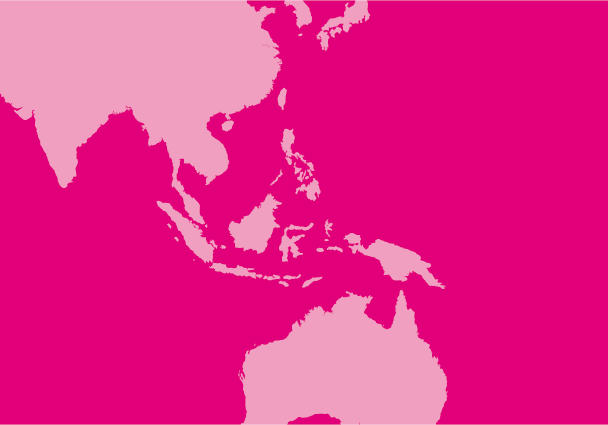
Dec 6, 2016 | News
Hosted on 3-4 December, the event was attended by a total of 40 participants which includes representatives of CSOs, lawyers, MPs and village track administrators.
The workshop aimed to raise awareness of international standards and best practice of resettlement and development-based eviction and displacement among local community in order to mitigate potential adverse impact associated with the development of the Kyauk Phyu Special Economic Zone.
In the opening, Dr Daniel Aguirre, ICJ International Legal Adviser, outlined the essential role of lawyers and community members in safeguarding human rights and holding the State and investors accountable.
The discussion was led by international experts and experienced and committed leaders of Civil Society Organization.
Susanna Price from Australian National University highlighted key principles of the ADB’s Involuntary Resettlement Policy along with experiences from China, Cambodia and Indonesia.
U Hayman Oo, ICJ Legal Researcher, explained how the UN principles on Development-based Eviction and Displacement are applicable in the context of Myanmar and urged the participants to use these standards for their advocacy work.
U Myo Mrat Hein, the Director and lawyer of the Thazin Legal Aid Group, discussed important issues surrounding the national land acquisition legislation whilst Sean Bain, legal consultant at the ICJ give a brief overview of important provisions of the Myanmar SEZ Law (2014).
The other two guest local speakers shared their first-hand experiences of advocacy work and resettlement issues which occurred during the development of Dawai and Thilawa SEZ respectively.
Participants exchanged strategies and ideas to take preparatory steps to mitigate potential impacts of the KPSEZ in terms of protecting their economic, social and cultural rights, learning from Dawei and Thilawa, as well as from international standards which Myanmar recognizes.
The new Kyauk Phyu SEZ Management Committee, along with Dawai and Thilawa, was formed last month with over 30 members including international and local social and environmental experts.
In a meeting held in Nay Pyi Taw following the establishment of the SEZ Management Committee, Daw Aung San Su Kyi emphasized that the current three SEZs of the country are leading projects for Myanmar’s economic growth.
She also expressed concerns over the potential negative effect of these zones if not properly implemented.
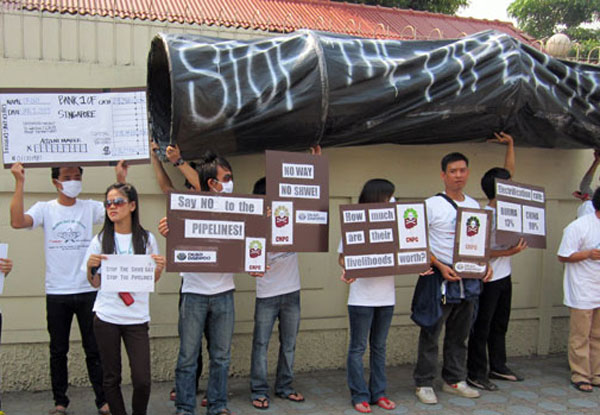
Jul 1, 2016 | Feature articles, News
A feature article by U Hayman Oo, ICJ Legal Researcher in Yangon, Myanmar.
In a recent meeting with Chinese ambassador to Myanmar and villagers, organized in Kyauk Phyu, a villager from Gone Shein Village asked the ambassador to help address the damages caused to their farmland by the Shwe Gas Pipeline Project that began five years ago.
She also expressed doubts that the Kyauk Phyu Special Economic Zone (Kyauk Phyu SEZ) would benefit villagers amid all the unresolved disputes.
Given such disputes, local people are not optimistic about the upcoming development of the Kyauk Phyu SEZ.
They perceive that the project will be a ‘loss’ rather than a ‘gain’ for them.
Most of the local population of farmers fear that the project will be a disaster to their livelihood along with massive land losses.
On a recent trip to Kyauk Phyu by the International Commission of Jurists (ICJ), community members, including local MPs and lawyers, reported their concerns that a second round of such abuses will be experienced, this time even worse, during development of the Special Economic Zone planned for the area, despite promises from the Government that the development will be environmentally sustainable and bring socio-economic benefits to the region.
In fact, Special Economic Zone can contribute to the country’s economy and help benefit the welfare of its people – but only if sound policies of sustainable development in compliance with human rights are in place.
Otherwise, massive economic projects of this kind risk large-scale adverse environmental, social and human rights impacts.
Kyauk Phyu residents know very well how foreign investments can be harmful for the community when investors fail to comply with local laws as well as international standards, because of their experience with the Shwe Gas Project, a Myanmar-China pipeline.
The Gas Pipeline project was notorious for reported labour abuses, and claims of inadequate compensation for land confiscation, arrest and detention of community leaders and loss of community livelihoods and environmental degradation.
Villagers still frequently take to the street demanding for the damages caused to their farmland to be addressed, in the absence of a proper grievance mechanism.
With these prevailing experiences in mind, local residents were alarmed when authorities reportedly measured about 250 acres for the SEZ around Kathapray, Krat Tein, and Thaing Chaung village tracts in Kyauk Phyu, raising more concerns of land acquisition and compensation.
Locals complain that there was no transparent discussion over compensation for this potential land acquisition.
Villagers from Pyai Sate Kay village reportedly lost about 40 acres of farmland to the construction of a reservoir.
Although, the compensation were made for 5.1 acre of farmland, the rest of grazing land was not compensated according to a report from a villager.
There were also complaints that the compensation was neither a current market price nor a sufficient amount of money for them to be able to buy a similar size of land for cultivation.
He also complained that the Government promised to provide replacement land, but that this has not yet happened.
A total of over 70 acres of land was also apparently acquired for another reservoir under construction near Thai Chaung village.
Compensation was only paid for the farmland acreas occupied for the construction excluding land affected by the access to the reservoir.
“We were compensated but the land we lost were not measured properly. The amount paid was only on the basis of approximation. The land we lost should have been measured carefully to pay for the compensation,” said Ko Tun Nu from Thaing Chaung village.
It is reported that these reservoirs were constructed with the purpose of water supply for the SEZ project.
Furthermore, villagers from Ohn Taw and Pyai Sate Kay also reportedly lost a total of 220 acres of land when it was allocated for construction of a police station between the villages.
Although generally the purpose of the security force stationed there is for the security of the township, local people suspect that this increased security presence is instead in preparation to meet the security demands for the planned SEZ project.
There has apparently been no discussion over compensation. It is also questionable whether this volume of land is necessary for the construction of a police station.
According to the Special Economic Zone Law 2014, the Ministry of Home Affairs is responsible for land acquisition in the area of a SEZ in accordance with existing laws and regulations.
It also imposes duties on the investors and developers to bear the expenses of compensation and relocation and to ensure that the standard of living of affected persons does not fall below their original living standard.
The new NLD-led Government has inherited ample land-related problems and has prioritized dealing with these issues.
On May 5th, the Government formed the ‘Central Committee for the Review of the Acquisition of Farmland and Other Land’ in order to combat nation-wide land disputes.
The Committee’s responsibilities include investigation of compliance with existing laws by relevant authorities.
The President has also instructed that all land acquisition cease until all existing land disputes are resolved.
In addressing those issues, it is important that international standards such as Basic Principles and Guidelines on Development Based Eviction and Displacement are integrated into national policies and regulations.
Only then will such projects ensure the protection of the rights and livelihood of communities and the promotion of responsible business in the country.
Myanmar-Kyauk Phyu SEZ-News-Op-eds-2016-BUR (Full text in Burmese, PDF)
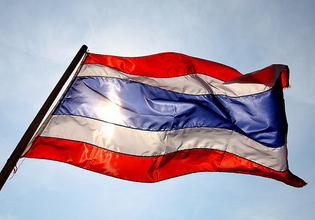
May 30, 2016 | News
The ongoing criminal trial in the Loei Provincial Court, where a verdict is awaited tomorrow, is an important test of Thailand’s commitment to hold those responsible for criminal offences against human rights defenders to account, the ICJ and Protection International said today.
On 31 May, the Loei Provincial Court will render its verdict following the trial of retired Royal Thai Army officer, Lt Gen Poramet Pomnak, and his son, Royal Thai Army officer, Lt Col Poramin Pomnak, on criminal charges related to their alleged participation in a violent attack by a group of over 100 armed men against members of the Khon Rak Ban Kerd Group (KRBKG) in Nanonbong village in Loei and other villagers.
The victims were assaulted and held captive for over seven hours during the attack in the evening of 15 May 2014.
More than 20 people were injured, with seven requiring hospitalization for serious injuries.
KRBKG is a community-based group protesting what they allege is the damaging impact of mining operations on their health and their environment.
Most of KRBKG’s activities have focused on stopping the operations of the Phuthapfa gold mine operated by Thai company, Tungkum Ltd., situated in Loei Province.
“This case has become emblematic of the human rights abuses faced by human rights defenders trying to protect their communities in Thailand,” said Sam Zarifi, ICJ’s Asia Director. “Many people are looking at this case to see whether the Thai government will follow through on its commitment to protect human rights defenders.”
The attack on Nanonbong village occurred after KRBKG and local residents barricaded the road to the gold mine, which passes through the village.
During the attack, the barricade was destroyed and at least 13 trucks were reportedly seen transporting materials from the mine site.
Partly based on the villagers’ testimony that Lt Col Poramet Pomnak and Lt Col Poramin Pomnak were involved in the 15 May violence, the two were indicted on several charges, including offences of ‘injury to the person causing bodily harm’ and ‘false imprisonment’ (or illegal deprivation of liberty), under articles 295 and 309 of the Thai Criminal Code.
“Given credible reports that a group of over 100 armed men were involved, the ICJ is concerned that only two people have been indicted for the attack, and we are therefore calling on the Thai authorities to re-open investigations and ensure all those responsible are held to account and redress is provided for the victims concerned,” Zarifi added.
The case against Lt Col Poramet Pomnak and Lt Col Poramin Pomnak comes against a background of disputes between KRBKG and Tungkum Ltd.
The company filed at least 19 criminal and civil lawsuits against 33 members of KRBKG and other villagers in the past seven years.
One of those cases includes claims of criminal defamation against a 15-year old girl who allegedly made negative statements about the company’s activities on a television program.
Members of KRBKG have joined as plaintiffs in the criminal case and are demanding compensation from the two defendants.
Background
Lt Col Poramet Pomnak and Lt Col Poramin Pomnak were formally indicted on the following charges of the Thai Penal Code: articles 295 (‘injury to the person causing bodily harm’) and 296 (sentencing for bodily harm), 309 (‘false imprisonment’ or ‘illegal confinement’) and 310 (sentencing for false imprisonment), 358 (‘offence of mischief’ or ‘damage to property’) 371 (‘offence of bearing arms’), 376 (‘offence of discharging a firearm’), 391 (sentencing for acts of violence not amounting to bodily harm) taken together with articles 32, 33, (‘forfeiture of property used in the commission of an offence’) 83, 84, (principals and accomplices, accessories or conspirators) 91, (articles 90 and 91 set out provisions for sentencing when an act constitutes multiple offences. Sentences can be awarded for each offence consecutively, but with a maximum time as prescribed by article 91); and articles 4, 7, 8bis, 72, 72bis of the Firearms, Ammunition, Explosives, Fireworks, and the Equivalent of Firearms Act B.E.2490 (1947); article 3 of the Firearms, Ammunition, Explosives, Fireworks, and the Equivalent of Firearms Act (No.3) B.E.2501 (1958); No. 3, 6, 7 of the Order of the Announcement of the National Administrative Reform Council no.44 dated 21 October 1976.
Thailand has a legal obligation to protect all human rights defenders from retaliation for the legitimate and lawful exercise of their rights. On 17 December 2015, Thailand joined 126 other States at the UN General Assembly in adopting one of the latest UN resolutions on human rights defenders. General Assembly resolution 70/161 recognizes the importance of States’ protection of human rights defenders, in particular from being prosecuted for peaceful activities and against other threats, harassment and intimidation; and encourages States to investigate allegations of intimidation and reprisals, and to bring perpetrators to justice.
Thailand-Loei case-News-2016-THA (full text in Thai, PDF)
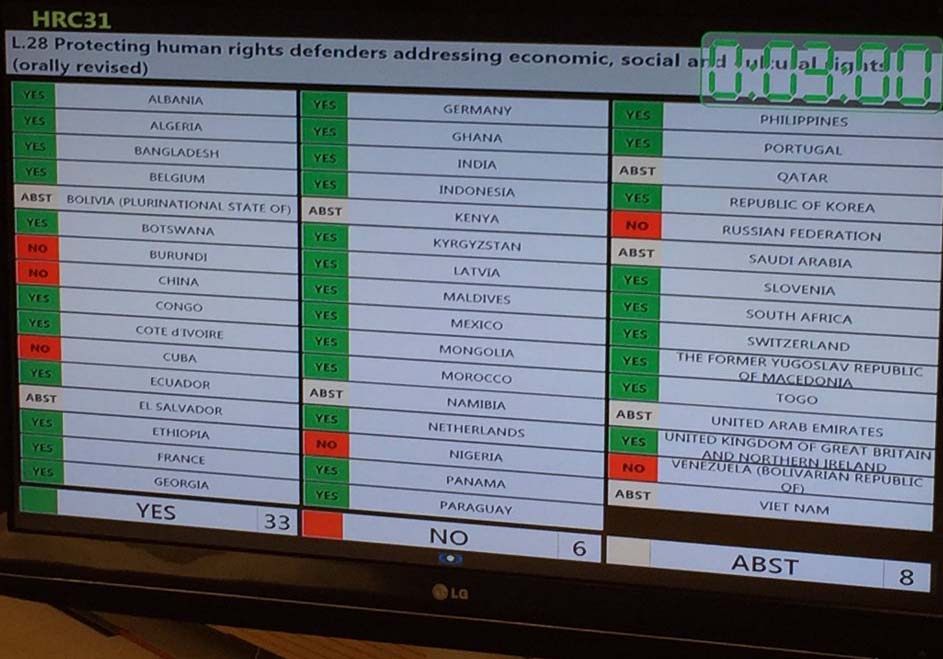
Mar 24, 2016 | News
The ICJ welcomes today’s adoption by the UN Human Rights Council of a resolution on human rights defenders addressing economic, social and cultural rights.Negotiation of the resolution was led by Norway, who presented the draft to the Council with co-sponsorship with a large number of states from around the world.
A series of hostile amendments tabled by the Russian Federation, China, Cuba, Egypt and Pakistan, which would have weakened the resolution, were defeated, and the resolution was ultimately adopted by a large majority.
The ICJ had earlier joined advocacy efforts to support the resolution text as presented, and welcomes the strong message the resolution as adopted sends affirming the importance of defenders’ work on economic, social and cultural rights, as well as the need for states to respect, protect and fulfil the human rights of such defenders, including through a range of legislative, policy, and practical measures.
The draft resolution is available in an unofficial version here: 2016 draft resolution HRDs as orally revised.
The voting on the resolution is available here: Result of the vote HRDs
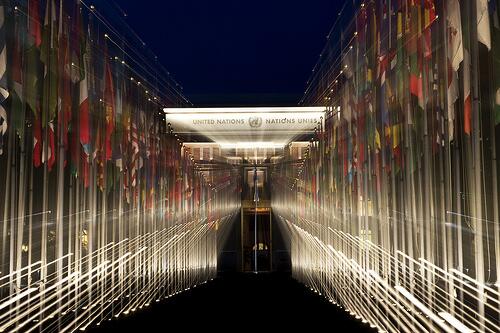
Mar 23, 2016 | Advocacy, Non-legal submissions
Today, the ICJ made a submission to the Human Rights Council’s Working Group on the Universal Periodic Review in advance of the Human Rights Council’s review of Uganda in October/November 2016.
In its submission, the ICJ expressed concern about the detrimental impact of the adoption and enforcement of the Anti-Homosexuality Act, 2014; the effect of pre-existing and extant criminalization of consensual same-sex sexual conduct; and the introduction of the Prohibition of Promotion of Unnatural Sexual Practices Bill, on the respect for and the protection and realization of human rights in Uganda.
A copy of the submission can be found here:
Uganda-ICJ CESCR submission-Advocacy-non legal submission-2015-ENG (full text in PDF)









